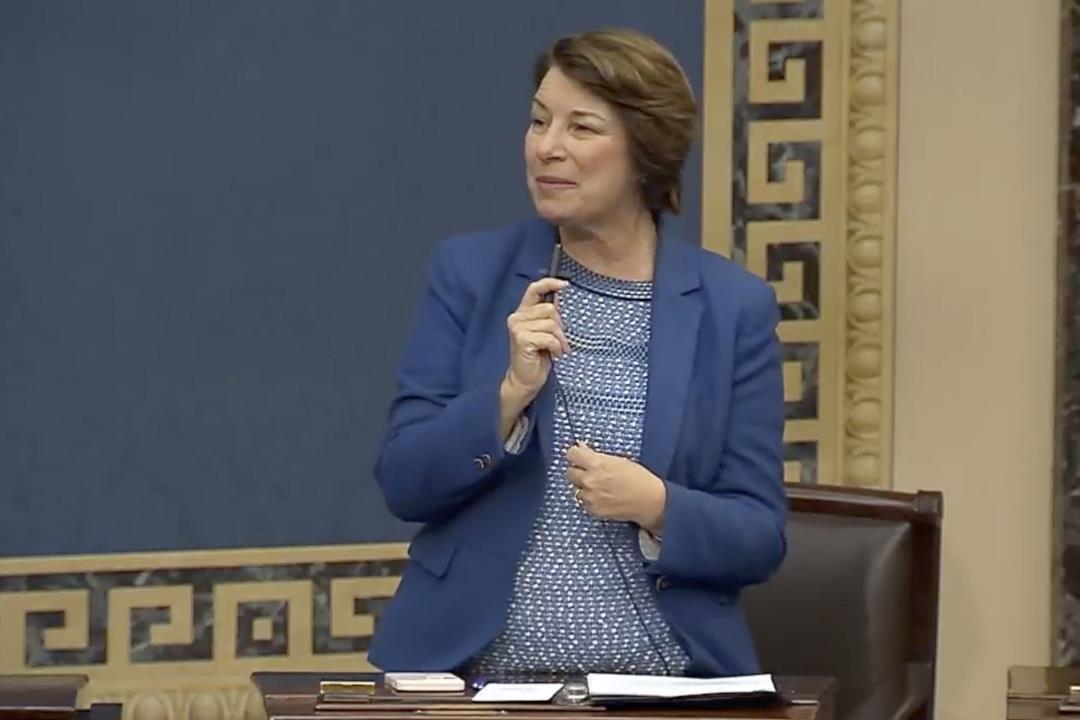
Artificial intelligence-generated deepfakes are currently making headlines because of their ability to create uncanny videos and audio clips of celebrities. From Tom Hanks promoting a dental plan to Pope Francis donning a stylish puffer jacket and Sen. Rand Paul sitting on the Capitol steps in a red bathrobe, deepfakes have become a popular trend. However, with the upcoming US presidential election, the rise of AI-generated political ads has raised concerns. To address these concerns, Google has announced that it will introduce new labels for deceptive AI-generated political advertisements that mimic a candidate’s voice or actions. Now, Sens. Amy Klobuchar and Rep. Yvette Clarke, both Democrats, are urging Meta and X (formerly Twitter) to address these issues and explain the rules they are implementing to protect free and fair elections.
According to Klobuchar, “They are two of the largest platforms and voters deserve to know what guardrails are being put in place.” She adds, “We are simply asking them, ‘Can’t you do this? Why aren’t you doing this?’ It’s clearly technologically possible.” The letter from Klobuchar and Clarke warns that the lack of transparency regarding AI-generated political ads could result in a dangerous influx of election-related misinformation and disinformation on their platforms, which are often used by voters to learn about candidates and issues. Clarke’s House bill, introduced earlier this year, aims to amend federal election laws to require disclaimers for election ads containing AI-generated images or video.
Klobuchar emphasizes that this is the minimum requirement and hopes that her companion legislation in the Senate will be passed before the end of the year. Meanwhile, the expectation is that big tech platforms will take appropriate measures voluntarily. Google has already announced that starting in mid-November, it will require a clear disclaimer on any AI-generated election ads that modify people or events on YouTube and other Google products. This policy will apply not only in the US but also in other countries where Google verifies election ads. While Facebook and Instagram parent company Meta does not have a specific rule for AI-generated political ads, it does have a policy against using “faked, manipulated, or transformed” audio and imagery for spreading misinformation.
story continues below
A recent bipartisan Senate bill, co-sponsored by Klobuchar, Republican Sen. Josh Hawley, and others, aims to ban “materially deceptive” deepfakes related to federal candidates, with exceptions for parody and satire. Klobuchar cites examples of fake videos, such as a post-apocalyptic Biden era, former President Trump embracing Anthony Fauci, and Sen. Elizabeth Warren proposing restrictions on Republican voting, which would likely be banned under the proposed rules. Klobuchar expresses concern about the potential for misleading voters during a presidential race, saying, “How are you ever going to know the difference?”
(Read more artificial intelligence stories.)
Denial of responsibility! Vigour Times is an automatic aggregator of Global media. In each content, the hyperlink to the primary source is specified. All trademarks belong to their rightful owners, and all materials to their authors. For any complaint, please reach us at – [email protected]. We will take necessary action within 24 hours.


